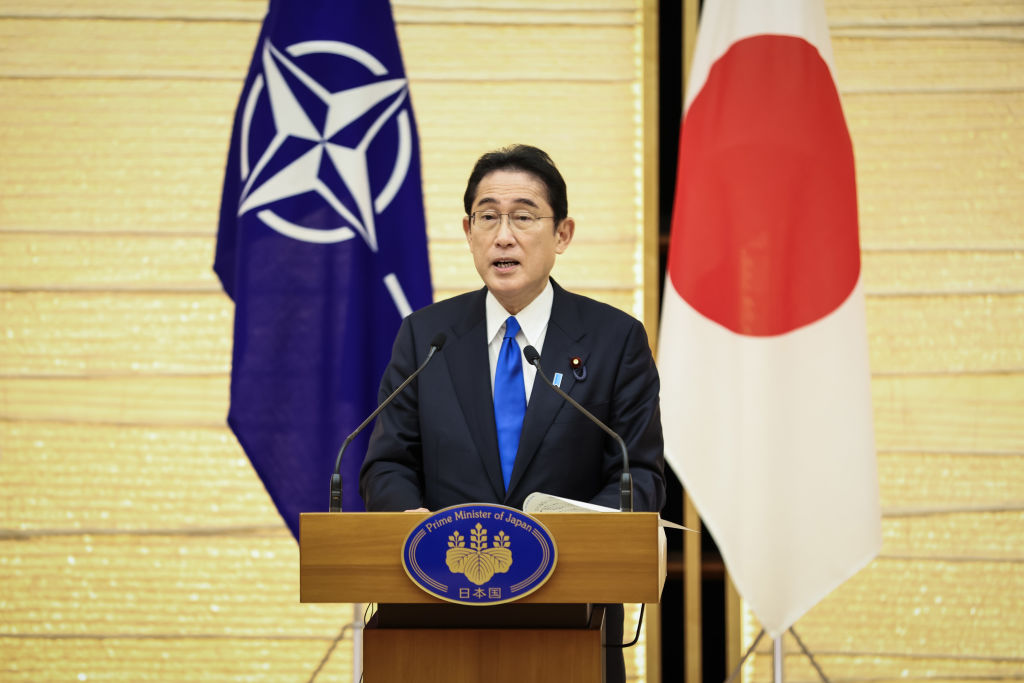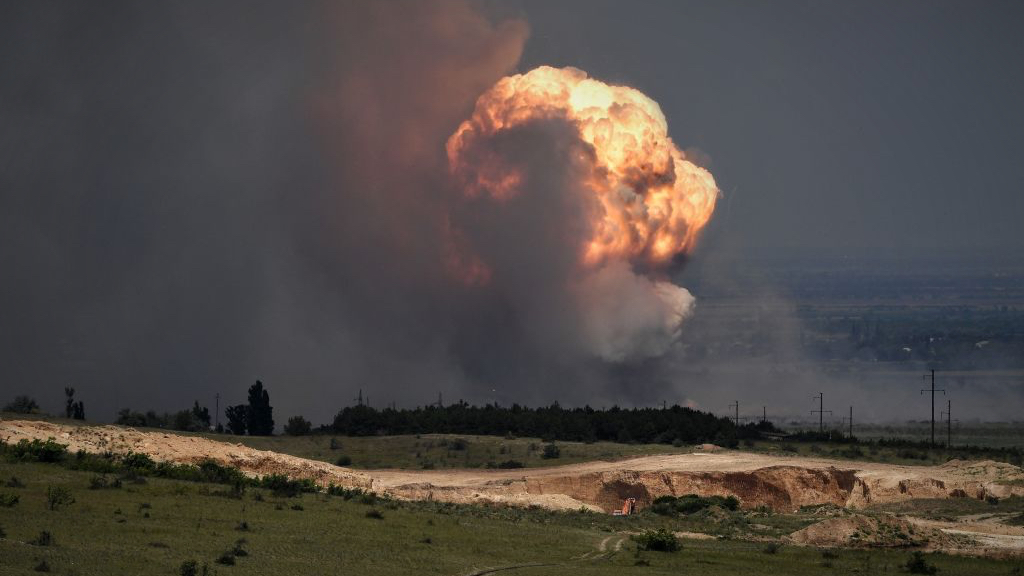Japan pledges an additional $5.5 billion in humanitarian aid to Ukraine


A free daily email with the biggest news stories of the day – and the best features from TheWeek.com
You are now subscribed
Your newsletter sign-up was successful
Japanese Prime Minister Fumio Kishida on Monday announced plans to send $5.5 billion in financial aid to Ukraine, "nearly quadrupling the amount of money Tokyo has promised to Kyiv" since the Russian invasion began, CNN writes.
Kishida said Japan "is in a position to lead the world's efforts to support Ukraine in its fight against Russian aggression and to uphold a free and open international order based on the rule of law." Tokyo previously pledged to send $600 million in financial assistance and $700 million in humanitarian aid, including medical supplies and food. Japan also joined the U.S. and European nations in imposing sanctions against Russia.
"Russia's aggression against Ukraine is not just a European matter, but a challenge to the rules and principles of the entire international community," the prime minister added.
The Week
Escape your echo chamber. Get the facts behind the news, plus analysis from multiple perspectives.

Sign up for The Week's Free Newsletters
From our morning news briefing to a weekly Good News Newsletter, get the best of The Week delivered directly to your inbox.
From our morning news briefing to a weekly Good News Newsletter, get the best of The Week delivered directly to your inbox.
The Japanese government reacted quickly to the invasion because "it fears a possible impact of the war in East Asia, where China's military has grown increasingly assertive and has escalated tensions around self-ruled Taiwan," The Associated Press says. Kishida also cited North Korea's growing collection of missiles as a looming threat to Japanese security. While making the announcement, he acknowledged he was moving decisively because of "strong concern that Ukraine may be tomorrow's East Asia."
Kishida also announced that he would be hosting an online summit of G7 leaders and Ukrainian President Volodymyr Zelensky on Friday to mark the first anniversary of Moscow's invasion.
"Due to Russia's actions, the world now faces a real threat from nuclear weapons," Kishida said. "It is important to convey the reality of the atomic bombings to the world, including the G7 leaders, as the starting point for all efforts toward nuclear disarmament."
A free daily email with the biggest news stories of the day – and the best features from TheWeek.com
Theara Coleman has worked as a staff writer at The Week since September 2022. She frequently writes about technology, education, literature and general news. She was previously a contributing writer and assistant editor at Honeysuckle Magazine, where she covered racial politics and cannabis industry news.
-
 Local elections 2026: where are they and who is expected to win?
Local elections 2026: where are they and who is expected to win?The Explainer Labour is braced for heavy losses and U-turn on postponing some council elections hasn’t helped the party’s prospects
-
 6 of the world’s most accessible destinations
6 of the world’s most accessible destinationsThe Week Recommends Experience all of Berlin, Singapore and Sydney
-
 How the FCC’s ‘equal time’ rule works
How the FCC’s ‘equal time’ rule worksIn the Spotlight The law is at the heart of the Colbert-CBS conflict
-
 Russia's Crimea fleet shipyard on fire after Ukrainian missile strike
Russia's Crimea fleet shipyard on fire after Ukrainian missile strikePhotos and videos showed huge explosions and raging fires at the Sevastopol Shipyard
-
 Nobody seems surprised Wagner's Prigozhin died under suspicious circumstances
Nobody seems surprised Wagner's Prigozhin died under suspicious circumstancesSpeed Read
-
 Western mountain climbers allegedly left Pakistani porter to die on K2
Western mountain climbers allegedly left Pakistani porter to die on K2Speed Read
-
 'Circular saw blades' divide controversial Rio Grande buoys installed by Texas governor
'Circular saw blades' divide controversial Rio Grande buoys installed by Texas governorSpeed Read
-
 Los Angeles city workers stage 1-day walkout over labor conditions
Los Angeles city workers stage 1-day walkout over labor conditionsSpeed Read
-
 Mega Millions jackpot climbs to an estimated $1.55 billion
Mega Millions jackpot climbs to an estimated $1.55 billionSpeed Read
-
 Bangladesh dealing with worst dengue fever outbreak on record
Bangladesh dealing with worst dengue fever outbreak on recordSpeed Read
-
 Glacial outburst flooding in Juneau destroys homes
Glacial outburst flooding in Juneau destroys homesSpeed Read
